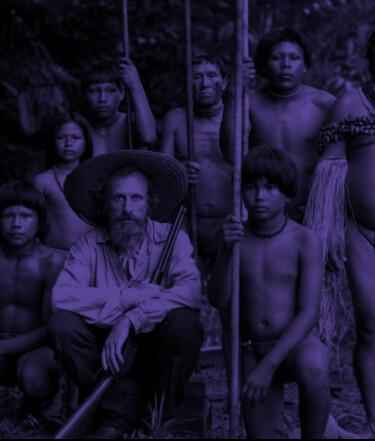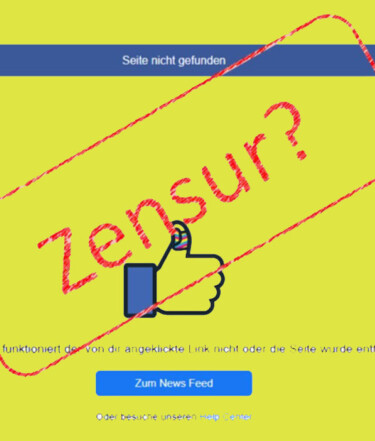
Freedom of speech on LinkedIn: Criticism of political parties must be permitted
The career platform LinkedIn deleted a post by Robin Mesarosch, a member of the German federal parliament. In his post, he called for a clearer distance from the far-right AfD party, which the platform classified as hate speech. We oppose the arbitrary deletion of posts and hence the violation of freedom of speech.
LinkedIn is a platform where one can expand and maintain one's professional network, read and share posts, and exchange ideas on a wide variety of topics. Robin Mesarosch (SPD), a member of the Bundestag, used the platform's public forum to respond to a statement made by Friedrich Merz, chairman of the CDU. Merz had previously stated that a cooperation with the AfD was possible at the municipal level.
Mesarosch criticized that statement and warned against normalizing the hatred that the AfD stirs up on a daily basis against marginalized groups such as foreigners, gays and lesbians, women and differently-minded people.
LINKEDIN FLAGS POST AS HATE SPEECH
A few hours after the post was taken down, the career platform flagged Mesarosch's post as hate speech. This was despite the fact that the member of the Bundestag had in fact explicitly spoken out against hate speech and called for a clear distance from racist parties.
LinkedIn classified the post as "hate speech" and deleted it, citing its own Community Guidelines - even though the platform points out in these very guidelines that denouncing actual hate speech is permitted. The platform did not back down from its decision even after a complaint from the MP. We are now taking joint action against this violation of freedom of expression. We have applied to the Hechingen Regional Court for interim legal protection.
PLATFORMS MAY NOT ARBITRARILY DELETE POSTS BY THEIR USERS
The aim of these proceedings is to clarify in court that platforms must comply with fundamental rights standards when moderating posts by their users: While digital violence such as criminal insults or racist posts may and must be deleted, posts below this threshold are covered by freedom of expression. Only in this way is a free and pluralistic exchange on the Internet possible.
"On social media, too, we must be able to state precisely where dangers to our democracy lurk and from whom they emanate. Anyone who stands up against hate with clear words does not thereby make themselves an agitator, but rather shows responsibility," Mesarosch emphasizes: "My complaint is for freedom of expression and all those who raise their voices for our democracy."
PROTECTION AGAINST DISCRIMINATION IS A HUMAN RIGHT
The objective debate with a political party, regardless of its political leanings, is not only covered by freedom of opinion, but is an integral part of a vibrant democracy. Especially in the case of parties like the AfD, public debate is an important tool, since their party program as well as regular statements by leading politicians have repeatedly been shown to contain racist and misogynistic discrimination, among other things.
Protection against discrimination and racism is a human right that Germany has undertaken to protect on the basis of Article 3 of the Basic Law and the UN Convention against Racism. Education about racism as well as speaking out about it are just as important as active protection. Calling out racism, as Robin Mesarosch has done in his post, must therefore be possible.
BGH SETS CLEAR REQUIREMENTS FOR DELETING POSTS
The German Federal Supreme Court (BGH) has developed clear criteria for the deletion of Facebook posts that can be applied to LinkedIn. If platforms give themselves their own guidelines and allow the deletion of "hateful" posts even below criminal liability, the required elements of such an incident must also be met. No disparagement is recognizable in Mesarosch's post, and any justification for the deletion is missing.
The GFF has already filed two lawsuits against arbitrary deletions by platforms in the past: Facebook had blocked the entire pages of the anti-corporate NGO Goliathwatch and the Filmwerkstatt Düsseldorf for no reason. At the same time, GFF is campaigning, among other things, with its own draft bill for a Digital Violence Protection Act, to ensure that actual hate speech and digital violence are addressed effectively.




